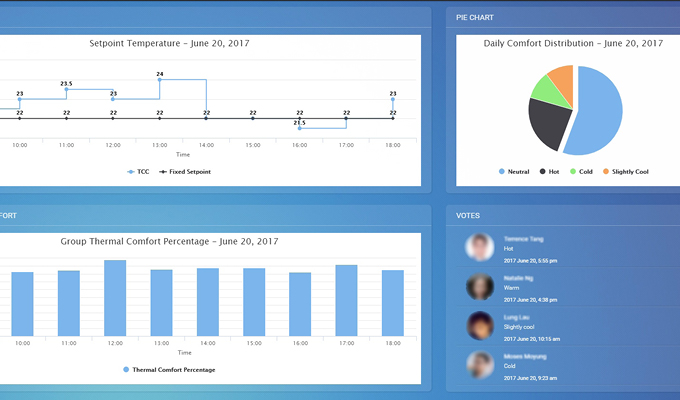Offices with centralised air-conditioning are often found to have set low temperature, adversely affecting occupants’ comfort and resulting in energy wastage. However, there is no mechanism that allows managing units of buildings to precisely measure the thermal comfort level of every individual in an office.
To tackle the situation, Dr Wang Dan at the Department of Computing has developed a personalised intelligent temperature optmisation platform based on a physiology thermal comfort model. In addition to collecting data via sensors of centralised air conditioning system, the platform can also collect feedback on thermal comfort level such as hot, warm, slightly warm, neutral, cool, cold etc from occupants though their smart phones. Based on the data collected, the platform will then analyse and calculate the best thermal comfort level for all occupants in the office, and adjust the room temperature automatically.
The research team validated the platform in a 45-square-metre office with 13 working staff on daily average. Results showed that the platform was effective in improving thermal comfort by 33.8% while raising room temperature by 1.75 degree Celsius and reducing energy consumption by close to 20%.
This intelligent temperature optimisation platform has earlier won the TechConnect Global Innovation Awards 2017.
